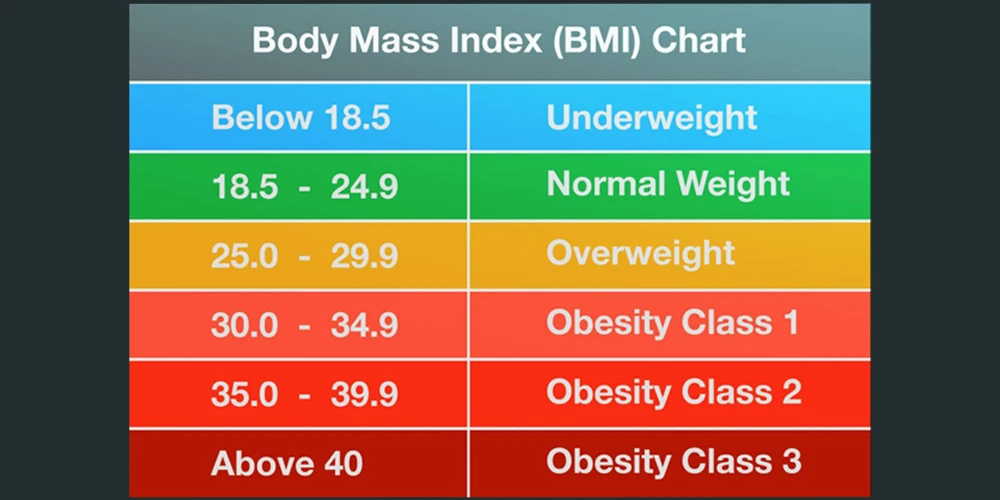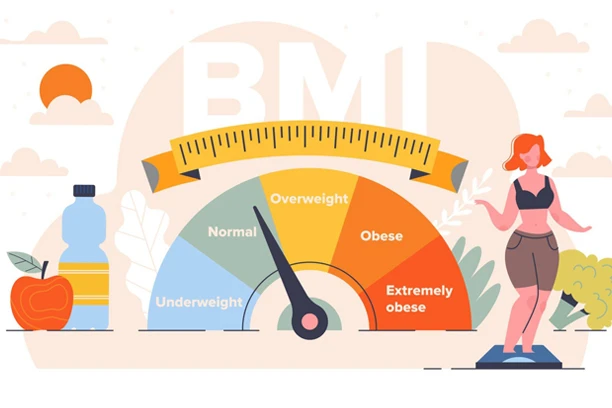Body mass index (BMI) is a common metric used in healthcare facilities to determine patient health.
It has been frequently criticised for its simplicity of what being healthy actually entails while being used for decades as the standard measurement for health based on body size.
In fact, many people argue that BMI should not be utilised in medical or fitness settings since it is antiquated and inaccurate.
Everything you need to know about BMI, its history, whether it’s a reliable indicator of health, and Yash Birla’s takeaway, is provided in this article.
What is BMI?
BMI stands for body mass index. The BMI was invented in 1832 by a Belgian mathematician named Lambert Adolphe Jacques Quetelet.
He created the BMI scale to help governments allocate health and financial resources by swiftly estimating the level of overweight and obesity in a specific community.
Interestingly, Quetelet asserted that using BMI to study a single individual was inferior to using it to assess the general health of a community. Still, it’s commonly used to assess the health of individuals.
The BMI scale is based on a mathematical formula that compares a person’s height in metres squared to their weight in kilograms to determine whether they are a “healthy” weight:
- BMI = weight (kg) / height (m2)
Alternatively, you can compute BMI by multiplying 703 by the result of dividing weight in pounds by height in square inches:
- BMI = (weight (lbs) / height (in2)) x 703
In order to assess whether you fall within the range of “normal” weight, your BMI is computed and then compared to the BMI scale.

To answer the question – Is BMI a good measure of your health? No, BMI is not always an accurate measure of health.
While BMI may be a quick, inexpensive, and convenient way to screen for a person’s health, experts claim that the formula is better suited for data about broad populations. Yash Birla believes that there are various more aspects to take into account when examining BMI on an individual basis that BMI does not account for:
- BMI does not calculate the amount of body fat.
Body fat percentage (BFP) is the percentage of your body’s mass that is made up of fat tissue. Skinfold callipers, bioelectrical impedance, or—for the best accuracy—a DXA X-ray scan—are the usual methods of measurement.
The fact that BMI does not take into consideration the distinction between muscle and fat is one of its fundamental flaws. Despite being in peak physical condition, many sportsmen and bodybuilders are classified as overweight by the BMI because muscle tissue is dense than fat.
Because illness risk is more closely connected with body fat than with body weight, the body fat percentage will provide a better indication of health.
- BMI does not take into account various demographics.
When Quetelet first developed BMI, it used data from Anglo-Saxon bodies in a population that was entirely European. As a result, it frequently gives the health of people from other groups and races an inaccurate representation.
For Asian communities, the obesity cut-off for BMI is lower than it is for other populations, according to a study. The World Health Organization discovered in 2004 that Asians had lower BMIs than persons who were at high risk for type 2 diabetes and cardiovascular disease.
Another sizable 2004 study with over 15,000 Chinese individuals discovered that compared to Caucasians, a lower BMI and waist circumference was associated with a higher risk for cardiovascular disease. This means that when Asian persons are screened for BMI, their illness risk may be greater in BMI charts that are deemed healthy or normal.
- BMI does not assess the distribution of body fat.
Another crucial aspect of general health is the precise distribution of fat, which the BMI does not account for. Lower body fat around the thighs and butt is less associated with health issues, such as cardiovascular disease than upper body fat around the waist and visceral fat.
Mr Yash Birla’s takeaway is that although determining your body mass index might be a quick and simple approach to checking your health results, there are many limitations to BMI, including various demographics, weight distribution, and body fat percentage.
Metabolic parameters like blood pressure and waist size can better predict your overall risk for specific health concerns, helping us better understand your health.
In order to better understand what is personally healthy for you and your body, it is entirely natural and safe to see your doctor or another medical professional if you are worried about your weight or BMI.








Leave A Comment